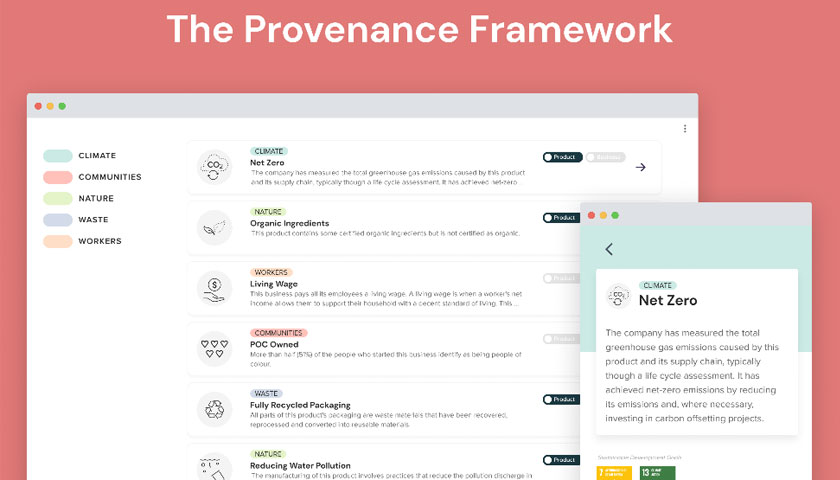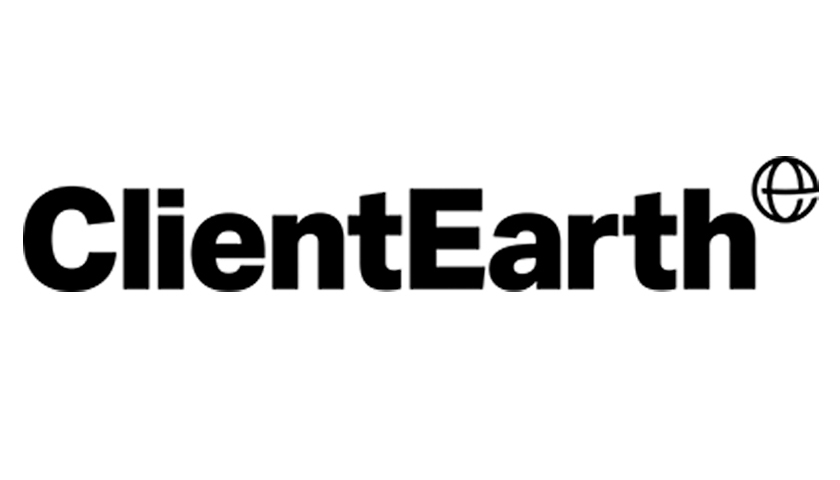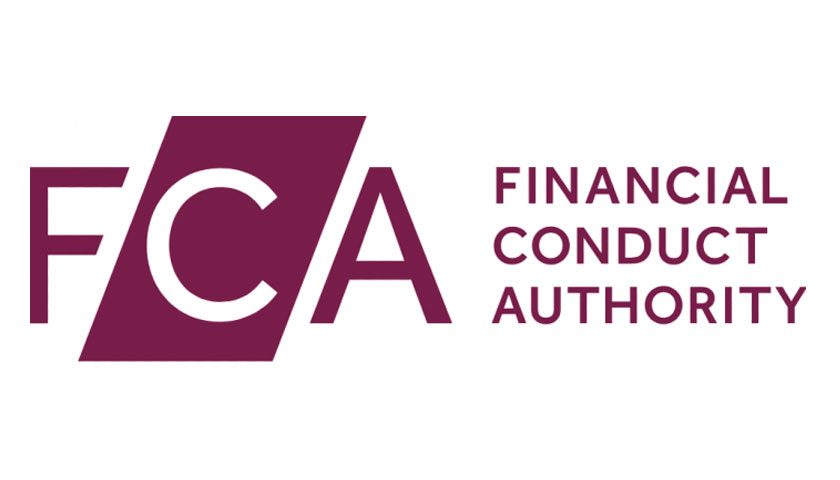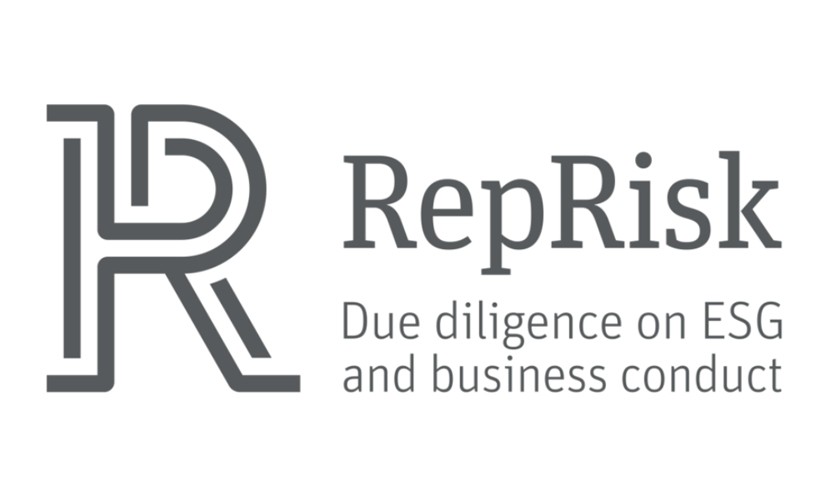In advance of UK Government guidelines designed to stamp out greenwashing by brands, Provenance – a software company and social enterprise that enables businesses to make substantiated green claims and shoppers to fact-check them online and in-store – has launched a free, digital rulebook, the ‘Provenance Framework’ to help businesses prove their eco-credentials and keep them shopper-friendly. The online tool is version 2.0 of an original ‘Proof Point’ framework for which the European Commission awarded Provenance a €1M prize in 2020.
An open-source product, the rulebook helps businesses make credible shopper-facing claims about their social and environmental impact. Its launch comes in advance of updated guidance on Consumer protection law from the Competition and Markets Authority (CMA) – the UK’s competition regulator – that is expected later this summer. The CMA and its international partners most recently found that that 40% of corporations’ green claims could be misleading – for example, labelling products as ‘organic’ or ‘recycled’ when the majority of ingredients are neither, claims that may also break consumer law.
Co-developed by leading sustainability experts, and continually updated in line with the latest ESG standards, Provenance’s rulebook allows brands to convert supply chain data into claims that shoppers can easily understand and trust. Brands visiting the free site can now quickly undertake the following actions:
-
Examine 50+ impact claims they might want to make across five focus areas (Climate, Communities, Nature, Waste and Workers)
-
Understand the specific criteria that would have to be met to make that claim
-
Review guidance on the relevant verifiers (such as CarbonNeutral®, 1% for the Planet and Ethical Trading Initiative) and the evidence those bodies require to substantiate a claim
-
View expert advice on how a claim should be publicly communicated.
With more people than ever making purchase choices based on sustainability criteria, industry analysts believe increasing numbers of businesses may feel incentivised to make misleading, vague, or false claims about their products. It’s in this context that Jessi Baker, founder and CEO of Provenance, says brands genuinely committed to green issues need to double down on transparency and proof.
“Opaque sourcing practices and supply chains – and sometimes active greenwashing – mean that many of today’s shoppers are confused about which purchases could be better for the planet. At the same time, with no universal standard for making and proving ‘green’ claims, genuinely committed businesses can feel paralysed – and frustrated with competitors that mislead shoppers.
“They worry about accusations of greenwashing when in reality they deserve to be able to openly share the facts behind their positive social and environmental impact, converting it into real brand value. The urgent need for credible, verifiable messaging is clear so we wholeheartedly embrace the CMA’s guidance – and hope that The Provenance Framework can support businesses in implementing that guidance,” Baker added.
Alexia Inge, co-founder and co-CEO of online beauty store Cult Beauty commented, “As sustainability becomes a ‘marketing must’, greenwashing will never be far behind and the last thing the world needs is deflated apathy from confused consumers. At Cult Beauty we’re always looking for ways to empower our customers to do easy, but trustworthy diligence around brand claims and that is why we partnered with Provenance to power our Cult Conscious initiative. Provenance helps us provide our customers the verified facts they need to make confident consumption decisions that will make a difference, in a way that was previously unheard of in the beauty industry.”
The launch of The Provenance Framework comes at a time when the role of competition authorities in achieving sustainability and environmental goals is in the European spotlight. The UK’s CMA has already published initial guidelines in advance of its final report later this summer; in January The Netherlands Authority for Consumers and Markets (ACM) released five “rules of thumb” for environmental claims and began its investigation into the 170 largest local businesses last month, while the European Commission is also currently considering amendments to the EU consumer law framework to regulate environmental claims. (In the US meanwhile, denim label Amendi and policy collective Politically in Fashion are leading an effort calling on the Federal Trade Commission to review its Green Guides, which outline rules against greenwashing but haven’t been updated since 2012.)
It’s great to see greenwashing being tackled, we covered it in our first ever podcast, take a listen:



